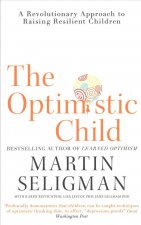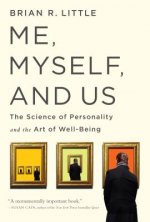
Kod: 04535918
Origins of Morality
Autor Dennis L. Krebs
Why do people behave in moral ways in some circumstances, but not in others? In order to account fully for morality, Dennis Krebs departs from traditional approaches to morality that suggest that children acquire morals through so ... więcej
- Język:
 Angielski
Angielski - Oprawa: Twarda
- Liczba stron: 320
Wydawca: Oxford University Press Inc, 2011
- Więcej informacji o książce

Zobacz książki o podobnej tematyce
-

Empire in Question
34.85 € -10 % -

Powers
77.77 € -

Chicken Soup for the Fisherman's Soul
14.30 € -20 %
Bon podarunkowy: Radość gwarantowana
- Podaruj bon o dowolnej wartości, a my się zajmiemy resztą.
- Bon podarunkowy dotyczy całej naszej oferty.
- Możesz wydrukować elektroniczny bon z e-maila a następnie przekazać go obdarowanemu.
- Ważność bonu wynosi 12 miesięcy od daty wystawienia.
Więcej informacji o Origins of Morality
Za ten zakup dostaniesz 279 punkty
 Opis
Opis
Why do people behave in moral ways in some circumstances, but not in others? In order to account fully for morality, Dennis Krebs departs from traditional approaches to morality that suggest that children acquire morals through socialization, cultural indoctrination, and moral reasoning. He suggests that such approaches can be subsumed, refined, and revised gainfully within an evolutionary framework. Relying on evolutionary theory, Krebs offers an account of how notions of morality originated in the human species. He updates Darwin's early ideas about how dispositions to obey authority, to control antisocial urges, and to behave in altruistic and cooperative ways originated and evolved, then goes on to update Darwin's account of how humans acquired a moral sense. Krebs explains why the theory of evolution does not dictate that all animals are selfish and immoral by nature. On the contrary, he argues that moral behaviors and moral judgments evolved to serve certain functions. Krebs examines theory and research on the evolution of primitive forms of prosocial conduct displayed by humans and other animals, then discusses the evolution of uniquely human prosocial behaviors. He describes how a sense of morality originated during the course of human evolution through strategic social interactions among members of small groups, and how it was expanded and refined in modern societies, explaining how this sense gives rise to culturally universal and culturally relative moral norms. Krebs argues that although humans' unique cognitive abilities endow them with the capacity to engage in sophisticated forms of moral reasoning, people rarely live up their potential in their everyday lives. Four conceptions of what it means to be a moral person are identified, with the conclusion that people are naturally inclined to meet the standards of each conception under certain conditions. The key to making the world a more moral place lies in creating environments in which good guys finish first and cheaters fail to prosper.
 Szczegóły książki
Szczegóły książki
Kategoria Książki po angielsku Society & social sciences Psychology Child & developmental psychology
110.92 €
- Pełny tytuł: Origins of Morality
- Podtytuł: An Evolutionary Account
- Autor: Dennis L. Krebs
- Język:
 Angielski
Angielski - Oprawa: Twarda
- Liczba stron: 320
- EAN: 9780199778232
- ISBN: 019977823X
- ID: 04535918
- Wydawca: Oxford University Press Inc
- Waga: 590 g
- Wymiary: 240 × 162 × 26 mm
- Data wydania: 08. September 2011
Ulubione w innej kategorii
-

Rutter's Child and Adolescent Psychiatry 6e
136.01 € -

Truth Will Set You Free
12.89 € -28 % -

Conscious Femininity
16.21 € -28 % -

Optimistic Child
17.22 € -28 % -

Range
9.66 € -18 % -

Highly Sensitive Child
16.51 € -22 % -

Understanding Human Nature
14.50 € -

Integrating Play Therapy and Emdr with Children
13.69 € -9 % -

Attention, Balance and Coordination - The A.B.C.of Learning Success 2e
60.44 € -7 % -

Bilingual
24.27 € -17 % -

Gratitude Works! A 21-Day Program for Creating Emotional Prosperity
17.52 € -26 % -

Disappearance of Childhood
13.19 € -23 % -

Evolutionary Psychology
64.98 € -

Conscious Parent
18.63 € -22 % -

Playing and Reality
24.17 € -14 % -

Mind of Your Newborn Baby
19.23 € -3 % -

Me, Myself, and Us
14.10 € -33 % -

Cambridge Handbook of Infant Development
61.35 € -15 % -

Sociology of Family Life: Change and Diversity i n Intimate Relations
24.47 € -3 % -

Free to Learn
16.92 € -19 % -

Life Cycle Completed
13.79 € -14 % -

Bright Kids Who Can't Keep Up
17.82 € -

Uses of Enchantment
11.27 € -28 % -

Range
26.19 € -15 % -

Identity and the Life Cycle
15.51 € -9 % -

Hidden Treasure
52.79 € -

Introduction to Developmental Psychology 3e
69.41 € -7 % -

Making and Breaking of Affectional Bonds
18.13 € -14 % -

End of Average
12.18 € -22 % -

Attachment
34.15 € -

Teenage Brain
15.30 € -27 % -

ADHD
14.50 € -19 % -

Child Neuropsychology
90.47 € -4 % -

Adaptation to Life
36.67 € -

Healthy Pleasures
19.94 € -12 % -

Child with Special Needs
15.30 € -27 % -

Seeds for Social Renewal
17.32 € -18 % -

How Children Fail
17.82 € -1 % -

Early Start Denver Model for Young Children with Autism
65.28 € -14 % -

How Children Learn
12.48 € -21 % -

Philosophical Baby
17.22 € -28 % -

How Children Succeed
11.27 € -28 % -

EMDR Therapy and Adjunct Approaches with Children
71.12 € -10 % -

Interpersonal World of the Infant
33.95 € -

Developmental Neuropsychology
58.63 € -

Integrative Approach to Treating Babies and Children
43.52 € -

Self Efficacy
134.80 € -3 % -

Child Psychology and Psychiatry - Frameworks for Clinical Training and Practice 3e
68.50 € -

Tree of Knowledge
29.01 € -18 %
Osobní odběr Bratislava a 2642 dalších
Copyright ©2008-24 najlacnejsie-knihy.sk Wszelkie prawa zastrzeżonePrywatnieCookies



 Vrácení do měsíce
Vrácení do měsíce Zdarma od 49.99 €
Zdarma od 49.99 € 02/210 210 99 (8-15.30h)
02/210 210 99 (8-15.30h)